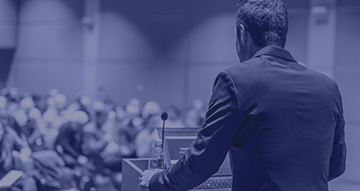Overview
Indo-Pacific is becoming the world’s strategic centre of gravity and its future affects people everywhere. The U.S. considers the Indo-Pacific as one of its important priorities of foreign policy. Recently the White House has come up with a revised Indo Pacific Strategy wherein the U.S. calls for a sustained and creative collaboration of allies, partners, institutions within the region and beyond. The document considers India to be a prominent regional leader contributing to a free and open Indo-Pacific and collaborating in new domains like health, space, cyberspace, technology cooperation, besides others. The year 2022 also celebrates 75 years of US-India ties.
Prior to the Covid-19 outbreak, several discussions on connectivity, security, trade, non-proliferation, had taken place in the context of the Indo-Pacific region. However, it is important to recognize the current changes in the international space and recommend a roadmap for successful Indo-Pacific development cooperation.
With this background, the Indian School of Business, in partnership with U.S. Consulate General, Hyderabad, is organising an international conference on A Roadmap for Indo-Pacific Regional Cooperation in A Post-Covid 19 World Order, on March 10 - 11, 2022 on a virtual platform. The objective of the conference is to engage various stakeholders of development and come up with a roadmap for a stronger Indo-Pacific Regional Cooperation in the context of the changing and uncertain times.
Speakers
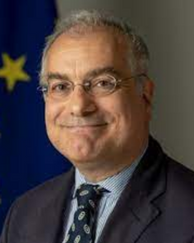
Ugo Astuto
Ambassador of the European Union to India and Bhutan
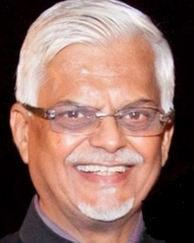
Sanjaya Baru
Distinguished Fellow, United Service Institution of India

Nayanima Basu
Diplomacy Editor
The Print

Rachel Fleishman
Senior Fellow for Asia-Pacific, Center for Climate and Security
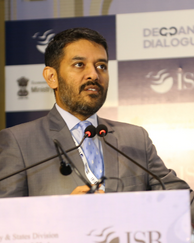
D N V Kumara Guru
Director - External Relations
Indian School of Business
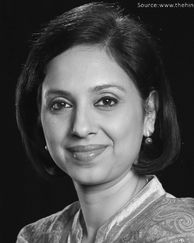
Suhasini Haidar
National Editor and Diplomatic Affairs Editor, The Hindu
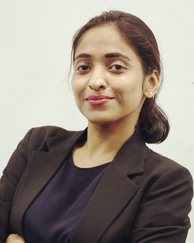
Sana Hashmi
Visiting Fellow
Taiwan-Asia Exchange Foundation (TAEF)
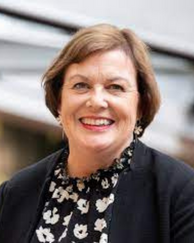
Bronwyn Hayward
Director, Sustainability, Citizenship and Civic Imagination and Professor, Department of Political Science and IR, University of Canterbury, New Zealand

Happymon Jacob
Associate Professor, Centre for International Politics, Organisation & Disarmament, School of International Studies, JNU

Kunihiko Kawazu
Deputy Chief of Mission, Embassy of Japan, New Delhi

Ulka Kelkar
Director – Climate
World Resources Institute India
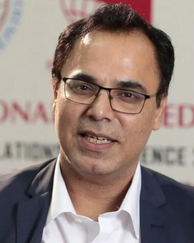
Manoj Kewalramani
Chairperson, Indo-Pacific Research Programme and Head, China Studies Programme, Takshashila Institution
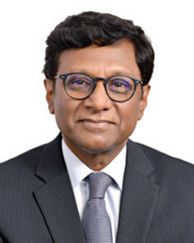
Mohan Kumar, IFS (Retd)
Chairman, RIS and Dean/Professor, Jindal Global University

Patricia A. Lacina
Chargé D’ Affaires, a.i.
U.S. Embassy New Delhi

Jennifer Larson
Acting Deputy Assistant Secretary for India, Bureau of South and Central Asian Affairs, U.S. Department of State
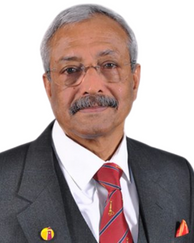
Lt Gen (Dr) Prakash Menon, PVSM, AVSM, VSM (Retd)
Director, Strategic Studies Programme, The Takshashila Institution
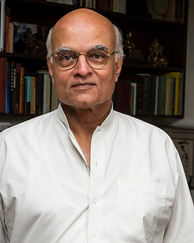
Shivshankar Menon, IFS (Retd)
Visiting Professor and Chair of Ashoka Centre for China Studies, Ashoka University

David Moyer
Public Affairs Officer, U.S. Consulate General Hyderabad

Ari Nathan
Indo-Pacific Regional Coordinator, U.S. Embassy in Colombo
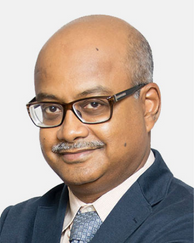
Amitendu Palit
Senior Research Fellow and Research Lead (Trade and Economics), Institute of South Asian Studies, National University of Singapore
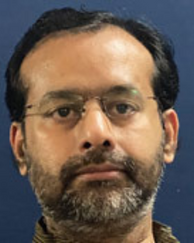
Jagannath Panda
Head of Stockholm Centre for South Asian and Indo-Pacific Affairs at the Institute for Security and Development Policy (ISDP), Sweden; and Director, Europe-Asia for YCAPS
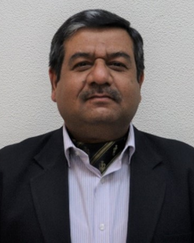
Capt Sarabjeet Singh Parmar
Senior Fellow, National Maritime Foundation
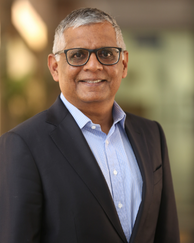
Madan Pillutla
Dean
Indian School of Business
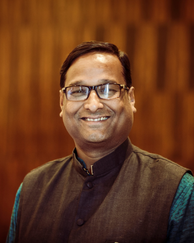
Anjal Prakash
Research Director and Adjunct Professor, Bharti Institute of Public Policy, ISB

G V Prasad
Co-Chairman and Managing Director, Dr Reddy’s Laboratories
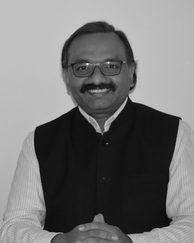
Sanjay Pulipaka
Independent Research on International Politics and Security Issues (Formerly Senior Fellow, Delhi Policy Group and ICRIER)
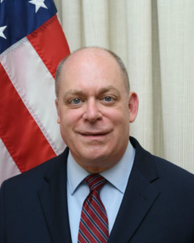
Joel Reifman
Consul General
U.S. Consulate General Hyderabad
.png)
Premesha Saha
Associate Fellow, Strategic Studies Programme, ORF
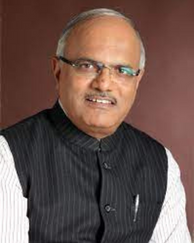
Vinay Sahasrabuddhe
President, Indian Council for Cultural Relations (ICCR) and Chairman, Parliamentary Standing Committee on Education, Women, Children, and Youth and Sports
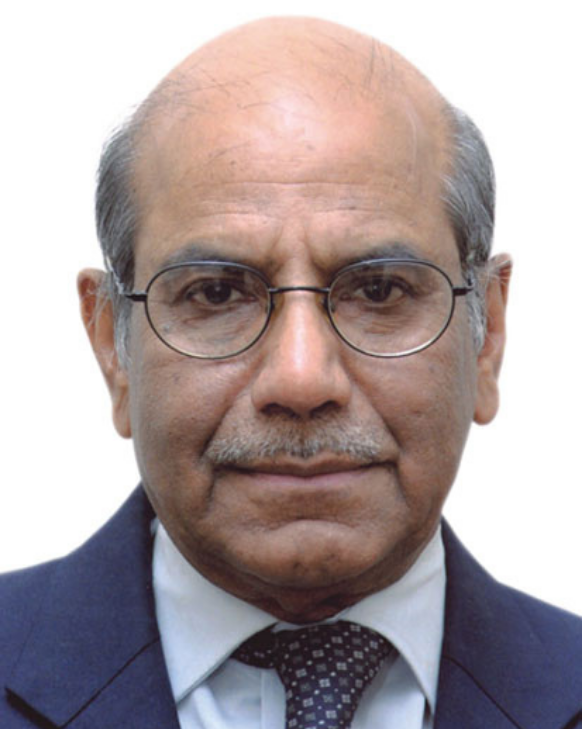
Shyam Saran, IFS (Retd)
Former Foreign Secretary of India and Senior Fellow and Member of the Governing Board, Centre for Policy Research (CPR)

Sanushka Seomangal
National Vice Chair
Australia India Business Council
.png)
The Hon Lisa Singh
CEO
Australia India Institute
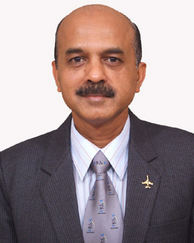
Air Vice Marshal (Dr) Arjun Subramaniam, AVSM (Retd)
President’s Chair of Excellence, National Defence College
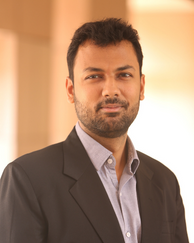
Shekhar Tomar
Assistant Professor, Economics and Public Policy, ISB
Agenda
Day 1: Thursday, March 10, 2022 |
|
1730 - 1800 hrs |
Inaugural Session: A Roadmap for Indo-Pacific Regional Cooperation Cooperation in the Indo-Pacific region is critical for development-based, emerging world order. The existing issues pertaining to security, development, and environment must be addressed for a successful Indo-Pacific region. The objective of this session is to set the scene for deeper deliberations and come up with a roadmap for a stronger Indo-Pacific regional cooperation. G V Prasad, Co-Chairman and Managing Director, Dr Reddy’s Laboratories Madan Pillutla, Dean, Indian School of Business Joel Reifman, Consul General, U.S. Consulate General Hyderabad |
1800 - 1845 hrs |
In-Conversation Session: Shaping Geopolitics in the Indo-Pacific India and the U.S. play a critical role in shaping geopolitics and making it strategically more relevant through aligning with the countries based on consensus and cooperation emerging out of common concerns. The objective of the session is to deliberate on various issues and opportunities that are shaping the geopolitics of the region. IN CONVERSATION WITH Shivshankar Menon, IFS (Retd) Visiting Professor and Chair of Ashoka Centre for China Studies, Ashoka University |
1850 - 1935 hrs |
Security Dialogue: Negotiating Security Partnership in the Indo-Pacific Theatre The Indo-Pacific is emerging as one of the most important theatres for the 21st century’s geopolitical affairs. The leaders in the region are striving to protect shared values and promote the security and prosperity of the region. As the foreign policy perspectives of countries vary and change based on diplomatic requirements, it is important to negotiate for a strong security partnership that incorporates not only military capabilities but also cyber capabilities, AI, quantum technology and undersea capabilities. The objective of this session is to discuss AUKUS and other developments in negotiating a stronger security partnership in the Indo-Pacific theatre. Jagannath Panda, Head, Stockholm Centre for South Asian and Indo-Pacific Affairs, Institute for Security and Development Policy (ISDP) Sweden and Director, Europe-Asia for YCAPS Air Vice Marshal (Dr) Arjun Subramaniam, AVSM (Retd), President’s Chair of Excellence, National Defence College Moderator: Suhasini Haidar, National Editor, and Diplomatic Affairs Editor, The Hindu |
1940 - 2030 hrs |
Sagar Dialogue: Rules-Based Maritime Indo-Pacific Order For common prosperity and security in the Indo-Pacific region, there is a need to evolve through dialogue a common, rules-based order that respects sovereignty, territorial integrity, and equality of all nations. The objective of the session is to deliberate on the challenges in arriving at a rules-based maritime Indo-Pacific Order. Manoj Kewalramani, Chairperson, Indo-Pacific Research Programme and Head, China Studies Programme, Takshashila Institution Captain Sarabjit Singh Parmar (IN), Senior Fellow, National Maritime Foundation Premesha Saha, Associate Fellow, Strategic Studies Programme, ORF Moderator: Nayanima Basu, Diplomacy Editor, ThePrint |
2035 - 2125hrs |
Resilience Talks: Building Resilience in the Indo-Pacific: Climate Change and Disaster Response The Indo-Pacific is home to more than half the world’s population, and seven of the 15 biggest economies which account for 60 per cent of the world economy, two-thirds of all economic growth over the last five years. The region also faces major transnational challenges with the climate crisis being one that needs immediate attention. Being home to 70% of the world’s natural disasters, it becomes imperative for partners to come together to reduce their vulnerability to the impacts of climate change and environmental degradation. This session will aim to focus on measures that promote resilience to these 21st-century transnational threats focusing on climate change and natural disasters. Rachel Fleishman, Senior Fellow for Asia-Pacific, Center for Climate and Security Bronwyn Hayward, Director, Sustainability, Citizenship and Civic Imagination and Professor, Department of Political Science and IR, University of Canterbury, New Zealand Ulka Kelkar, Director - Climate, World Resources Institute, India Ari Nathan, Indo-Pacific Coordinator, U.S. Embassy in Colombo Moderator: Anjal Prakash, Research Director and Adjunct Professor, Bharti Institute of Public Policy, Indian School of Business |
2125 – 2130 hrs |
Sum-up & Closing |
Day 2: Friday, March 11, 2022 |
|
1030 - 1125 hrs |
Regional Dialogue: Modernizing Alliances, Strengthening Partnerships: Within and beyond the Indo-Pacific For the last 75 years, the Indo-Pacific region has witnessed several regional alliances, organizations, and treaties. These partnerships have the region generate 60% of the world’s GDP and two-thirds of the present global economic growth. This success has been attributed to a rules-based international order. However, such alliances and coalitions need to be updated in response to constantly evolving geopolitics, while ensuring that all partners and allies gain the benefits of a free and open Indo-Pacific that is more connected, prosperous, secure, and resilient. Advancement in technology and greater interconnectedness has meant that our societies are more integrated. Organizations like the European Union, which is one of the top investors in the region, now seek increased engagement with the Indo-Pacific. The objective of this session is to explore the synergy between these groupings with the larger developmental objectives of the Indo-Pacific region. The Hon. Lisa Singh, CEO, Australia India Institute Moderator: Sanjaya Baru, Distinguished Fellow, United Service Institution of India |
1130 - 1220 hrs |
Economic Dialogue: Building Prosperity in the Indo-Pacific As one of the fastest-growing regions in the world, the Indo-Pacific region has the capacity to elevate close to 1.5 billion people to the middle-income category. Despite COVID-19 impeding the pace of economic growth in the region, Indo-Pacific remains the epicentre of the world economy. That said, the focus needs to be on improving trade facilitation, promoting the digital economy and technology, rebuilding resilient supply chains, pushing for more decarbonization and clean energy, and equipping emerging economies of the region with high-standard infrastructure. The objective of the session is to talk about the aspects which would collectively enhance prosperity in the Indo-Pacific region. Amitendu Palit, Senior Research Fellow and Research Lead, Institute of South Asian Studies, National University of Singapore Sanjay Pulipaka, Independent Research on International Politics and Security Issues (Formerly Senior Fellow, Delhi Policy Group and ICRIER) Sanushka Seomangal, National Vice-Chair, Australia India Business Council Moderator: Shekhar Tomar, Assistant Professor, Economics and Public Policy, Indian School of Business |
1225 - 1320 hrs |
Diplomats’ Roundtable: Cooperation in the Indo-Pacific: Focus on Education, Healthcare, Technology and People-to-People Connect Cooperation within and beyond the Indo-Pacific region is critical to aspire for inclusive and resilient world order. There are multiple issues and challenges which needed networked cooperation and engagement like – education, healthcare, climate change, technology, manpower, besides others, that is needed to be discussed for arriving at a development-oriented Indo-Pacific region. The objective of this panel is to discuss and explore these areas of cooperation which would aim to strengthen the region’s collective soft power. Kunihiko Kawazu, Deputy Chief of Mission, Embassy of Japan, New Delhi Patricia A. Lacina, Chargé D’ Affaires, a.i. U.S. Embassy New Delhi Moderator: Madan Pillutla, Dean, Indian School of Business |
1320 - 1340 hrs |
Valedictory Session: The Way Forward: Exploring Soft Power Diplomacy To meet the common developmental goals in the Indo-Pacific region, it is important to collectively strengthen the soft power parameters involving cultural artefacts, political values, and foreign policies. There is a need to discuss the enduring features, themes, and complexities that shape the current and future relevance of soft power. The objective of this session is to explore the future and underexplored potential of the region's transnational networks that strengthen soft power diplomacy in the Indo-Pacific. Also, suggest a way forward to strengthen a stronger Indo-Pacific regional development cooperation. Dr Vinay Sahasrabuddhe, President, Indian Council for Cultural Relations (ICCR) and Chairman, Parliamentary Standing Committee on Education, Women, Children, and Youth and Sports |
| 1340 - 1350 hrs | Closing Remarks David Moyer, Public Affairs Officer, U.S. Consulate General Hyderabad DNV Kumara Guru, Director - External Relations, Indian School of Business |

